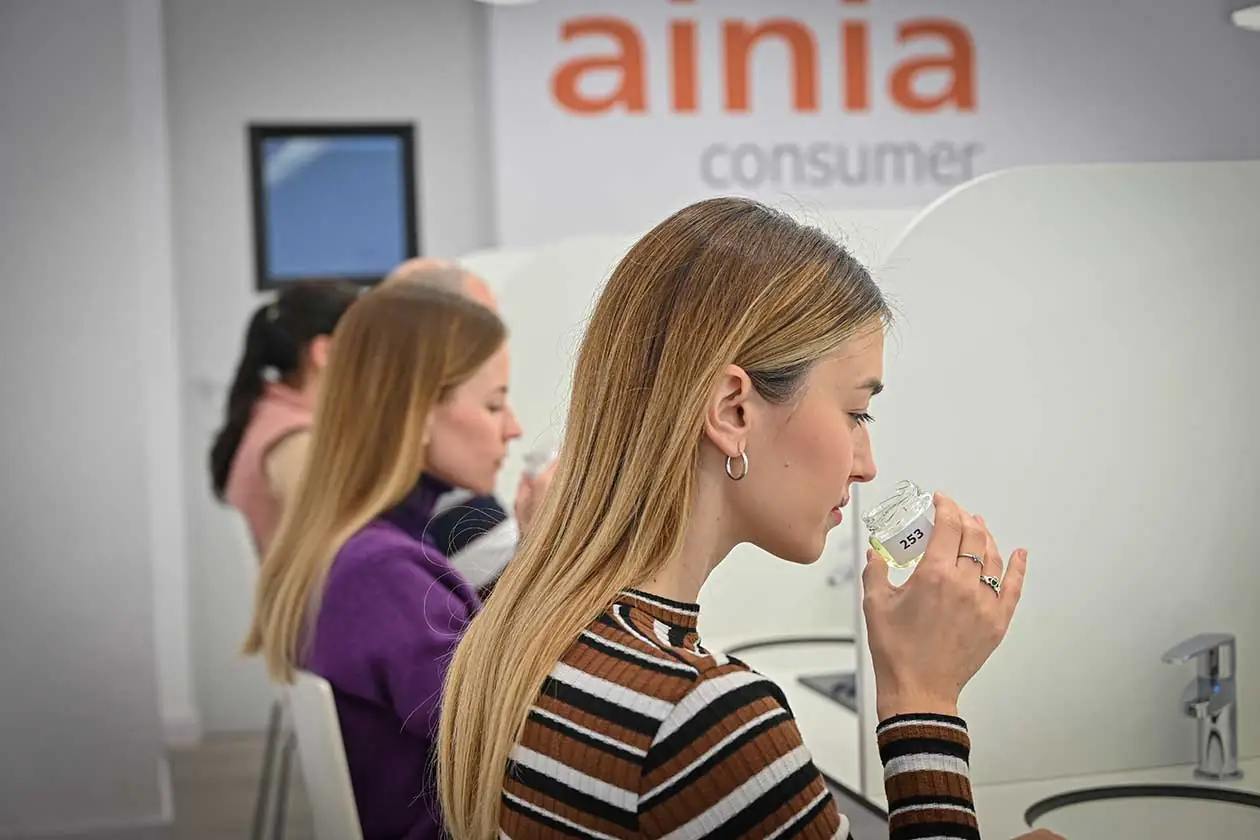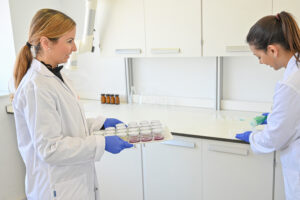The well-being generated during the application of cosmetic products on the skin evokes a range of emotions that are key to future purchasing decisions. The study of these emotions, neuromarketing, allows for the analysis of decision-making processes in which irrational, intuitive, heuristic, and affective processes play a crucial role. For this reason, sensory analysis is a powerful tool for the cosmetic industry. We will tell you more about it.
The cosmetic industry is a highly innovative sector, where the product lifecycle is approximately five years and where each year 15% of the market’s products are entirely new. According to the study of the perfume and cosmetics market in Spain, conducted by Stanpa in 2022, the reactivation in the last year is reflected in the increase experienced in all dimensions of consumption in the beauty sector.
In this context, Spain ranks as the fourth-largest beauty products market in the European Union, with a per capita consumption of €166/year. Currently, the standard Spanish consumer uses between 10 and 12 perfume and cosmetic products daily and consumes between 30 and 35 products annually. In this market, the design, research, and production of each product category require significant specialisation.
In this market, the design, research, and production of each product category require significant specialisation. Thus, most companies are focused on one or two product categories, which operate across different distribution channels. Consequently, the perfume and cosmetics sector operates in an omnichannel environment, meaning the consumer is present in any channel belonging to this market, including online.
CSS Consumer: conscious, supportive, and sustainable
In recent years, the emergence of a new consumer profile known as CSS: Conscious, Supportive, and Sustainable has been observed. The post-pandemic consumer has integrated new digital habits into their consumption pattern and heightened their commitment to the environment, altering their purchasing preferences based on sustainability standards. This consumer profile is highly sensitive to health and hygiene care, more attentive and careful with their own well-being and that of the planet.
Therefore, innovation is an inherent trait of the perfume and cosmetics sector and its evolution. Among the main features of the sector’s strong innovative character is that a third of the products launched have been reformulated and optimized in the last two years. Moreover, the sector faces a series of major challenges, starting with its evolution towards an Industry 5.0 and its own digital transformation process. However, all these challenges must be compatible with what is no longer just an awakening of ecological awareness but a tangible reality. These characteristics compel the industry to reinvent itself daily with the launch of new products in a market as broad as it is diverse.
In this context, understanding why a consumer buys a product is essential for focusing on the development of a new product and improvement processes. To comprehend the increasingly complex decision-making process, marketing scholars have begun to study the factors that drive purchasing decisions from a multidisciplinary perspective. The discipline of marketing has changed considerably and adapted to a vision incorporating different dimensions of consumers, expanding and enriching concepts, theories, and methodologies derived from psychology, sociology, anthropology, and, more recently, neuroscience.
Emotions, prejudices, and values: factors in understanding consumer choices
Concepts such as emotions, prejudices, and values are becoming increasingly important as intrinsic factors for understanding consumer choices. Neuromarketing (understood as the commercial and professional interest in neurophysiological tools for conducting studies by companies to explore markets and consumer behavior) utilizes neuroscientific tools to analyze biological signals and biomedical images to assess physiological responses to communicative stimuli. It is considered a cutting-edge approach for analyzing decision-making processes in which irrational, intuitive, heuristic, and affective processes play a key role.
The importance of sensory analysis in cosmetic products
Applying this knowledge to the cosmetic sector. While cosmetics are designed to provide certain benefits to the skin, if their sensory characteristics are not pleasing, it is unlikely that consumers will use them. For this reason, the cosmetic industry increasingly considers sensory characteristics in its marketing and communication strategy, making sensory characterisation a powerful tool.
When consumers interact with a cosmetic product, sensory perception can be divided into two key steps:
- Consumers perceive the organic properties of the product such as its colour, scent, and texture through their sensory system.
- This information is integrated so that consumers, through this physiological process, identify a symbolic value or feel a positive emotion.
Therefore, sensory evaluation is the first step towards the acceptance or rejection of products.
What role do neuroscience and emotions play in cosmetics?
Sensory analysis is a powerful tool for the cosmetic industry. The well-being generated during the application of cosmetic products on the skin evokes a series of emotions that are key to future purchasing decisions.
The development of a solid knowledge base in neuroscience applied in the field of sensory analysis and consumer behaviour provides a detailed description of the emotional properties of cosmetics when applied to the skin. It acts as a complementary tool for evaluating cosmetic products alongside conventional methods, allowing for a deeper understanding of consumer behaviour in the use, consumption, and purchase of cosmetic products.
Companies capable of developing products that are distinctive with respect to the sensory system or that generate positive emotions, as well as conducting studies tailored to these issues, can create a significant competitive advantage and, therefore, have a greater chance of success.
At AINIA Consumer, we have the know-how and experience of more than 30 years in applying sensory methodologies and consumer research, offering the cosmetic sector a specialized team and new infrastructure for the cosmetic industry. We have a room for sensory evaluation of cosmetic products and a room for conditioning and preparation of cosmetic products.







